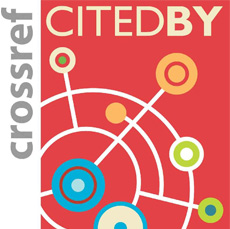ISSN : 2288-5412(Online)
DOI : http://dx.doi.org/10.14354/yjk.2006.26.109
An Intertextuality between W. B. Yeats’s and Jorge Luis Borges’s Poetics: its conjunction and disjunction
Abstract
In the respect that we, who can't be creators of texts but their agents, onlydrive violent 'assemblage' of code to camouflage Things, the suggestion that theimmortal poem of Sowol's, "Azalea," imitated "He wishes for the cloths of heaven"and "The Lover Mourns for the Loss of Love" of Yeats's is reasonable and natural, and it can be deduced that Sowol didn't duplicate Yeats's poems but borrowedmasochistic imagery from them, which reminds us of T. S. Eliot's declaration thatonly the first rank poet unnoticeably can steal other poets' works. On the otherhand, Borges, through the parodized "Pierre Menard, Author of the Quixote," showsus the meanings of the text changeable with transitions of generations. AccordinglySowol's poems tacitly responds to Yeats's poems, while Borges straightforwardlytranscribes the original work in view of self-reflexivity. That Yeats's response toShen-hsiu's and Hui-neng's Zen poems indicates that Zen can free people from theabstract mode of life fettering them is in contrast with Borges's reaction toBuddhism that 'a parable of arrow' and the high monk, Bodhidharma's insightde-constructing his pupil's faith of self-verification searching for his authentic mindonly leads to meaningless groping of life. Although the masters's views seemdifferent, virtually they are equal in the sense that life is nothing but some limitedplay in mood of 'tragic joy,' which is just like recognition of nothingness. Even ifthe entire works of Yeats's and Borges's can't be read, we can sense their themesconverged under keynote of 'maximalism.' For pursuit of a Utopia, Yeats yearns forit, but Borges denies it. In recognition of reality and fantasy, Yeats tries toovercome reality through fantasy, while Borges thinks of reality as fantasy. Theirpositions on woman are extremely different in that Yeats exposes masochisticsymptom, while Borges manifests 'carpe diem' mourning a beauty's fate finallyencroached by the beast of time. For the ultimate theme of God, Yeats longs forunity with God, instead, Borges views God 'langue' as cultural and linguisticstructure. Concerning cataclysm of civilization, the masters are of the same opinionsin that Yeats asserts cyclic patterns of civilization to move from the one pole to theother pole and Borges songs a Nietzschean circulation. They show us considerablywide contrasts concerning recognition of eternity since Yeats yearns for immortalexistence, while Borges views human beings ephemeral existences.
In conclusion, intertextuality functioning an essential principle of life becomesthe ground to deconstruct the boundary between authors and readers and shatters the absolute icons of authors and canons, since the moment we unfold texts before us,we often tend to indulge into illusion reading precisely them rather than 'misreading'them and recognizing reality caused by automaticity of linguistic structure. However,to avoid or lessen the contradiction or irony in the reading community, we canenjoy the horizon of split or inter-subjective meanings produced by diverse walks ofreaders with eradicating 'transcendental signified' of canon. After all, Intertextualitycan be the background of De-construction, simultaneously serves the ideology of'pragmatic theory' for texts not to be the origins or totalities of Things but tocontribute to this and that aim of life.
예이츠와 보르헤스의 상호 텍스트성: 그 연접과 이접
초록
-
-
Submission : JAMS
https://yjk.jams.or.kr/
-
YSK
The Yeats Society of Korea
-
Editorial Office
Contact Information- Tel: +82-2-2220-4477
- E-mail: ilhwan_y@hanyang.ac.kr -

-

-

-

-

-





